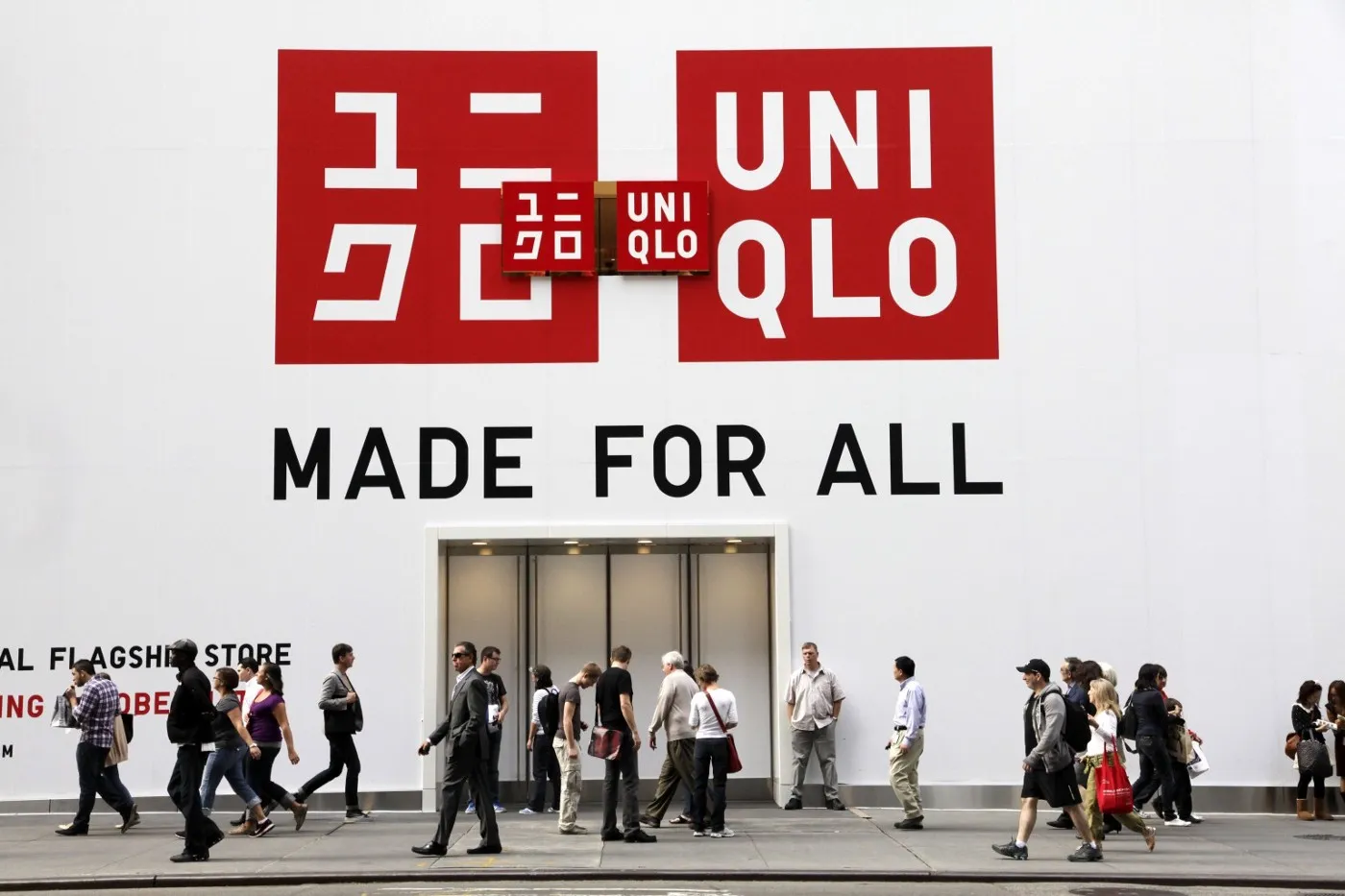How will Uniqlo take on the US? The goal is to get more Americans to know who they are.
In one of the toughest consumer markets in the world, the apparel company wants to go big with its cashmere sweaters and solid basics. Fast Retailing Co., the parent of Uniqlo, is giving its flagship clothing brand a hefty marketing budget in order for it to reach the same level of awareness in Iowa and Texas as it enjoys in Japan, Asia, and parts of Europe. Uniqlo is a fixture on shopping streets all over the country, but parent company Fast Retailing Co.
Daisuke Tsukagoshi, Uniqlo's US and Canadian CEO, says that varying tastes in clothing make expansion especially challenging.
In an interview at Uniqlo's warehouse-like office building on a reclaimed island in Tokyo Bay, 44-year-old Tsukagoshi said that people are asking what Uniqlo is. “Without marketing, there will be no growth."
Clothing giant Tsukagoshi only recently became profitable in North America, and it currently has only 61 stores, which represent less than 1% of a market worth $291 billion. In the next four years, Tsukagoshi intends to increase that to 200 — putting the US ahead of Europe, where it has 112 stores.
A year from now, Uniqlo North America will generate revenue of $300 billion ($2.3 billion) and a margin of 20%, compared with sales of 810 billion in Japan.
As a marketing and apparel phenomenon in its home market of Japan, Uniqlo is known for its simple yet fashionable designs on officewear, pajamas, and more. Despite being able to replicate some of that success in other parts of Asia as well as in Europe, Fast Retailing's CEO Tadashi Yanai, the richest man in Japan, has long dreamed of expanding to North America.
Although Uniqlo opened its first store in New Jersey in 2005, the brand has not succeeded on the same scale as it has in mainland China, where Tsukagoshi served as a chief operating officer from 2017 to 2020. With more than 900 stores and a sales volume of $538 billion, the country is a key market for Fast Retailing.
Because many shoppers fled cities during the pandemic in order to avoid infection, store locations were affected and online sales had to be considered more strategically. Increasing spending at home also resulted in a shift in tastes toward comfortable clothing.
After joining Fast Retailing in 2002, Tsukagoshi was responsible for turning around Uniqlo in North America during the height of the global Covid-19 outbreak. He closed unprofitable stores, reduced inventories, and took control of human resources.
Yanai hopes to reach his goal of 200 stores by opening 20 to 30 stores per year in North America during the current fiscal year, which ends in August. In comparison, Hennes & Mauritz AB has 740 H&M stores in the Americas, compared to Gap Inc., which has more than 2,000. They're up against entrenched global clothing brands already in the market.
Although North America remains a small market, its growth is helping the company offset risks in its largest revenue generators. While the company reported a decline in profit for the three months ended November due to the impact of China's Covid Zero policy, Chief Financial Officer Takeshi Okazaki said in January that the drop was limited by growth in other regions.
In order to avoid opening too many stores too soon, according to Credit Suisse Securities (Japan) Ltd. analyst Takahiro Kazahaya. A quick expansion should allow them to “proceed smoothly,” Kazahaya said. In 2001, Uniqlo opened 21 stores in the UK, only to shutter 16 of them two years later.
During the same period, North American consumers are forced to cut back on discretionary spending due to rising energy and food prices. As a result of inflation, S&P Global Market Intelligence economists predict retail sales in the US will decrease by 0.1% this year. According to Hennes & Mauritz, its latest quarter profit nearly got wiped out by severe increases in energy, freight, and garment prices.
Since the Uniqlo brand is so unpopular in the US, Fast Retailing will need to continue advertising the value of its clothing without reducing prices to gain customers.
“We used to discount a lot like other retailers, but now we don't," Tsukagoshi said. "We believe our concept of clothing made for everyone is a concept that can be accepted by everyone."

Subscribe to our newsletter!
As a leading independent research provider, TradeAlgo keeps you connected from anywhere.








